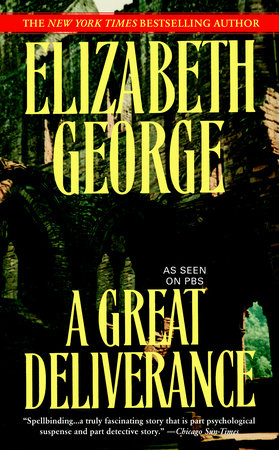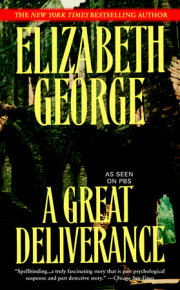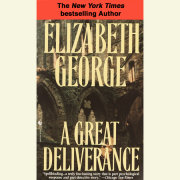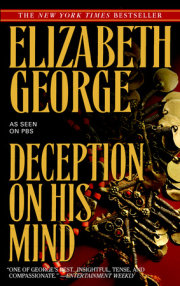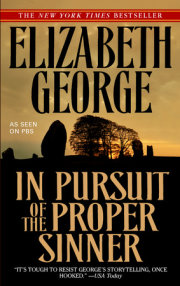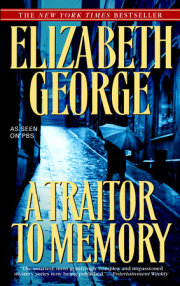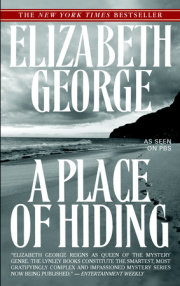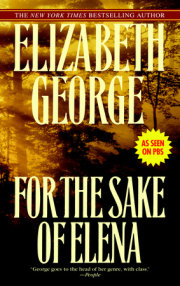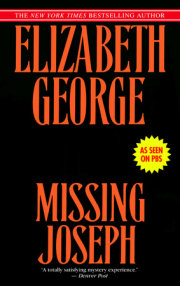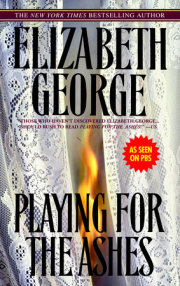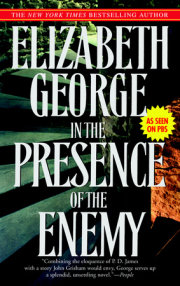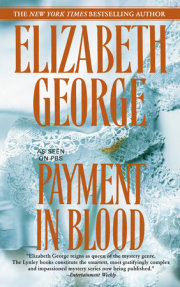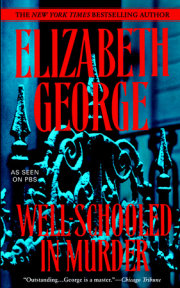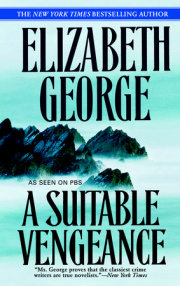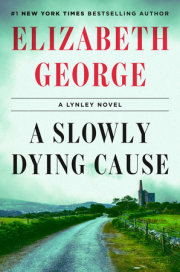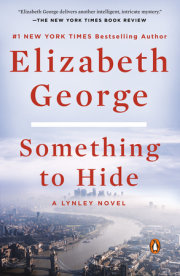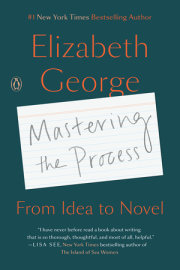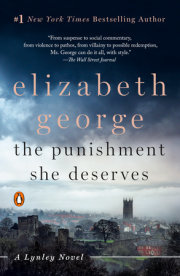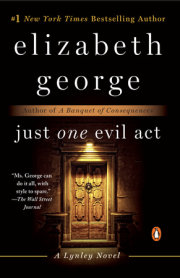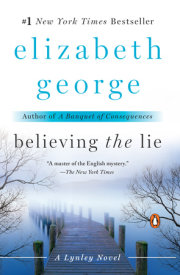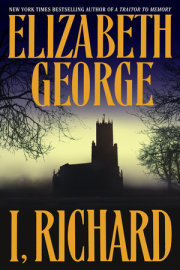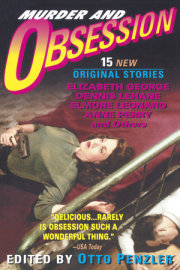Chapter One
It was a solecism of the very worst kind. He sneezed loudly, wetly, and quite unforgivably into the woman's face. He'd been holding it back for three-quarters of an hour, fighting it off as if it were Henry Tudor's vanguard in the Battle of Bosworth. But at last he'd surrendered. And after the act, to make matters worse, he immediately began to snuffle.
The woman stared. She was exactly the type whose presence always reduced him to blithering idiocy. At least six feet tall, dressed in that wonderfully insouciant mismatch of clothing so characteristic of the British upper classes, she was ageless, timeless, and she peered at him through razor blue eyes, the sort that must have reduced many a parlourmaid to tears forty years ago. She had to be well over sixty, possibly closer to eighty, but one could never tell. She sat bolt upright in her seat, hands clasped in her lap, a finishing-school posture which made no concessions towards comfort.
And she stared. First at his Roman collar, then at his undeniably dripping nose.
Do forgive, darling. A thousand apologies. Let's not allow a little faux pas like a sneeze to come between such a friendship as ours. He was always so amusing when engaged in mental conversations. It was only aloud that everything became a terrible muddle.
He snuffled again. Again she stared. Why on earth was she travelling second class? She'd swept into the carriage in Doncaster, like a creaking Salome with rather more than seven veils to her ensemble, and for the remainder of the trip she'd alternated between imbibing the railway's foul-smelling tepid coffee and staring at him with a disapproval that shouted Church of England at every available opportunity.
And then came the sneeze. Unimpeachably correct behaviour from Dancaster to London might have somehow excused his Roman Catholicism to her. But alas, the sneeze condemned him forever.
"I ... ah ... that is ... if you'll excuse ..." It was simply no good. His handkerchief was deep within his pocket. To reach it he would have to loosen his grasp on the battered attaché case in his lap, and that was unthinkable. She would just have to understand. We aren't talking about a breach of etiquette here, madam. We are talking about MURDER. Upon that thought, he snuffled with self-righteous vigour.
Hearing this, the woman sat even more correctly in her seat, every fibre of her body straining to project disapproval. Her glance said it all. It was a chronicle of her thoughts, and he could read each one: Pitiful little man. Pathetic. Not a day under seventy-five and looking positively every second of it. And so very much what one would expect of a Catholic priest: a face with three separate nicks from a poor job at shaving; a crumb of morning toast embedded in the corner of his mouth; shiny black suit mended at elbows and cuffs; squashed hat rimmed with dust. And that dreadful case in his lap! Ever since Doncaster he had been acting as if she'd boarded the train with the deliberate intention of snatching it from him and hurling herself out the window. Lord!
The woman sighed and turned away from him as if seeking salvation. But none was apparent. His nose continued to dribble until the slowing of the train announced that they were finally approaching their journey's end.
She stood and scourged him with a final look. "At last I understand what you Catholics mean by purgatory," she hissed and swept down the aisle to the door.
"Oh dear," muttered Father Hart. "Oh dear, I sup-pose I really have…" But she was gone. The train had come to a complete halt under the vaulted ceiling of the London station. It was time to do what he
had come to the city to do.
He looked about to make sure that he was in possession of all his belongings, a pointless operation since he had brought nothing with him from Yorkshire save the single attaché case that had as yet not left his grip. He squinted out the window at the vast expanse of King's Cross Station.
He had been more prepared for a station like Victoria-or at least the Victoria he remembered from his youth-with its comforting old brick walls, its stalls and buskers, these latter always staying one step ahead of the metropolitan police. But King's Cross was something altogether different: long stretches of tiled floor, seductive advertisements hanging from the ceiling, newsagents, tobacconists, hamburger shops. And all the people--many more than he had expected--in queues for tickets, gobbling down hurried snacks as they raced for trains, arguing, laughing, and kissing goodbye. Every race, every colour. It was all so different. He wasn't sure he could bear the noise and confusion.
"Getting out, Father, or planning to stop t' night?"
Startled, Father Hart looked up into the ruddy face of the porter who had helped him find his seat earlier that morning upon the train's departure from York. It was a pleasant, north country face with the winds of the moors etched upon it in a hundred separate blood vessles that rode and broke near the surface of his skin.
His eyes were flinty blue, quick and perceptive. And Father Hart felt them like a touch as they slid in a friendly but querying movement from his face to the attaché case. Tightening his fingers round the handle, he stiffened his body, hoping for resolution and getting an excruciating cramp in his left foot instead. He moaned as the--balled hotly to its zenith.
The porter spoke anxiously. "Maybe you oughtn't be travellin' alone. Sure you don't need no help, like?"
He did, of course he did. But no one could help. He couldn't help himself.
"No, no. I'm off this very moment. And you've been more than kind. My seat, you know. The initial confusion."
The porter waved his words away. "Don't mind that. There's lots of folks don't realise them tickets means reserved. No harm done, was there?"
"No. I suppose…" Father Hart drew in a quick, sustaining breath. Down the aisle, out the door, find the tube, he told himself. None of that could be as insurmountable as it seemed. He shuffled towards the exit. His case, clutched two-handed upon his stomach, bounced with each step.
Behind him, the porter spoke. "'Ere, Father, the door's a bit much. I'll see to 't."
He allowed the man space to get past him in the aisle. Already two surly-looking railway cleaners were squeezing in the rear door, rubbish sacks over their shoulders, ready to prepare the train for its return trip to York. They were Pakistani, and although they spoke English, Father Hart found that he couldn't understand a single word beneath the obfuscation of their accepts.
The realisation filled him with dread. What was he doing here in the nation's capital where the inhabitants were foreigners who looked at him with cloudy, hostile eyes and immigrant faces? What paltry good could he hope to do? What silliness was this? Who would ever believe--
"Need some help, Father?"
Father Hart finally moved decisively. "No. Fine. Simply fine."
He negotiated the steps, felt the concrete platform beneath his feet, heard the calling of pigeons
high in the vaulted ceiling of the station. He began to make his distracted way down the platform towards the exit and Euston Road. -
Behind him again he heard the porter. "Someone meeting you? Know where you're going? Where you off to now?"
The priest straightened his shoulders. He waved a goodbye. "Scotland Yard," he replied firmly.
Copyright © 1989 by Elizabeth George. All rights reserved. No part of this excerpt may be reproduced or reprinted without permission in writing from the publisher.

